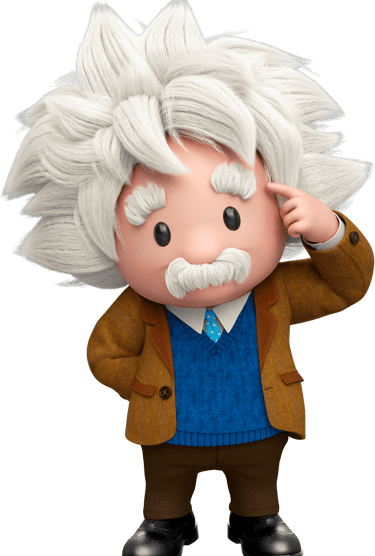afriads.io is live
How is AI changing your Marketing Plan
Artificial intelligence is no longer a futuristic concept; it’s a present-day force reshaping the marketing landscape. From data-driven insights to hyper-personalized customer experiences, AI is fundamentally altering the way businesses develop and execute their marketing plans. In this article, we’ll break down the evolution of marketing fundamentals, highlight real-life applications, and explore both simple actionable processes and complex strategic opportunities that agencies can leverage to offer enhanced value.
mediatec.africa
2/24/20253 min read


The AI-Driven Marketing Landscape
A New Era of Data and Personalization
At its core, AI transforms vast amounts of data into meaningful insights. Traditional marketing relied on broad demographic data and historical trends, but AI takes this a step further by analyzing real-time behavior, preferences, and interactions. This means that instead of blanket strategies, brands can now deliver highly personalized content and offers to each customer segment.
Predictive Analytics: AI algorithms can forecast trends and customer behaviors, allowing marketers to anticipate needs and optimize campaigns.
Customer Segmentation: Automated segmentation tools analyze complex data sets to identify micro-segments, ensuring that marketing messages hit the right note.
Real-Time Adaptability
Marketing campaigns can now adjust on the fly. AI-powered tools monitor performance metrics continuously and can reallocate resources or tweak messaging in real time. This dynamic approach not only improves efficiency but also maximizes ROI.
Actionable Processes: Simple AI Applications
For marketers looking to integrate AI into everyday tasks, here are some straightforward, actionable steps:
1. AI-Powered Chatbots
Implement chatbots on your website or social media channels to handle customer inquiries instantly. These bots use natural language processing (NLP) to understand and respond to customer queries, improving service efficiency and freeing up human resources for more strategic tasks.
2. Automated Email Marketing
Utilize AI to tailor email content based on user behavior. Tools can automatically segment your audience, determine optimal send times, and customize messages—resulting in higher engagement rates and conversion.
3. Social Media Management
Leverage AI tools for social listening and content scheduling. These platforms not only schedule posts but also analyze audience engagement, suggesting the best times to post and even generating content ideas based on trending topics.
4. Ad Optimization
Use AI for programmatic advertising. Algorithms can bid on ad placements in real time, ensuring that your marketing dollars are spent efficiently on channels that yield the best performance.
Complex Value-Driven Strategies for Agencies
Agencies looking to offer premium value to their clients can tap into more sophisticated AI applications that extend beyond day-to-day operations.
Advanced Consumer Insights
By integrating machine learning models, agencies can provide deep-dive analyses into consumer behavior. This involves:
Sentiment Analysis: Analyzing customer feedback across multiple channels to gauge brand perception.
Behavioral Forecasting: Predicting future trends and customer lifetime value to shape long-term strategy.
Enhanced Creative Strategies
AI is also making inroads into the creative process:
Content Generation: While human creativity is irreplaceable, AI tools can draft initial content, suggest headlines, or even propose visual layouts. This accelerates the brainstorming process and allows creative teams to focus on refining ideas.
A/B Testing at Scale: AI-driven platforms can run thousands of tests simultaneously, quickly identifying the most effective creative elements and messages.
Strategic Decision-Making and ROI Optimization
By integrating various data points—from customer interactions to broader market trends—AI enables agencies to:
Optimize Budgets: Allocate spending where it matters most, based on predictive models that forecast which channels will yield the highest returns.
Personalize Campaigns at Scale: Use dynamic content and personalized offers across campaigns, ensuring that every touchpoint is tailored to individual consumer needs.
Real-Life Applications and Case Studies
Consider a global e-commerce platform that integrates AI-powered recommendation engines. By analyzing user browsing patterns and purchase histories, the platform can suggest products with remarkable accuracy, leading to increased average order values and customer satisfaction.
Another example is a digital marketing agency that employs AI to analyze vast social media data. This agency not only identifies trending topics for its clients but also monitors sentiment in real time, enabling rapid responses to public relations challenges before they escalate.
These examples illustrate how AI-driven processes—whether simple or complex—can lead to substantial improvements in both operational efficiency and strategic impact.
What the Future Holds
The evolution of AI in marketing is just beginning. Future developments may include:
Hyper-Personalized Customer Journeys: Where every interaction is tailored in real time, ensuring a seamless and engaging customer experience.
Increased Automation of Routine Tasks: Freeing up creative and strategic resources to focus on innovation and brand building.
Deeper Integration of Augmented and Virtual Reality: Offering immersive experiences that blend digital and physical interactions.
For agencies, the continued integration of AI promises not only enhanced efficiency but also a competitive edge in delivering data-driven, value-oriented marketing solutions.
Conclusion
AI is fundamentally altering marketing strategies—from everyday actionable tools like chatbots and automated emails to complex data analytics and strategic planning. Whether you’re a small business looking to streamline operations or an agency aiming to offer top-tier, value-driven services, understanding and integrating AI is crucial for staying competitive in today’s dynamic market.
By embracing AI, marketers can expect not only improved efficiency and personalization but also a future where customer engagement is more intuitive and predictive than ever before. The revolution is here, and it’s redefining what it means to have a modern marketing plan.




